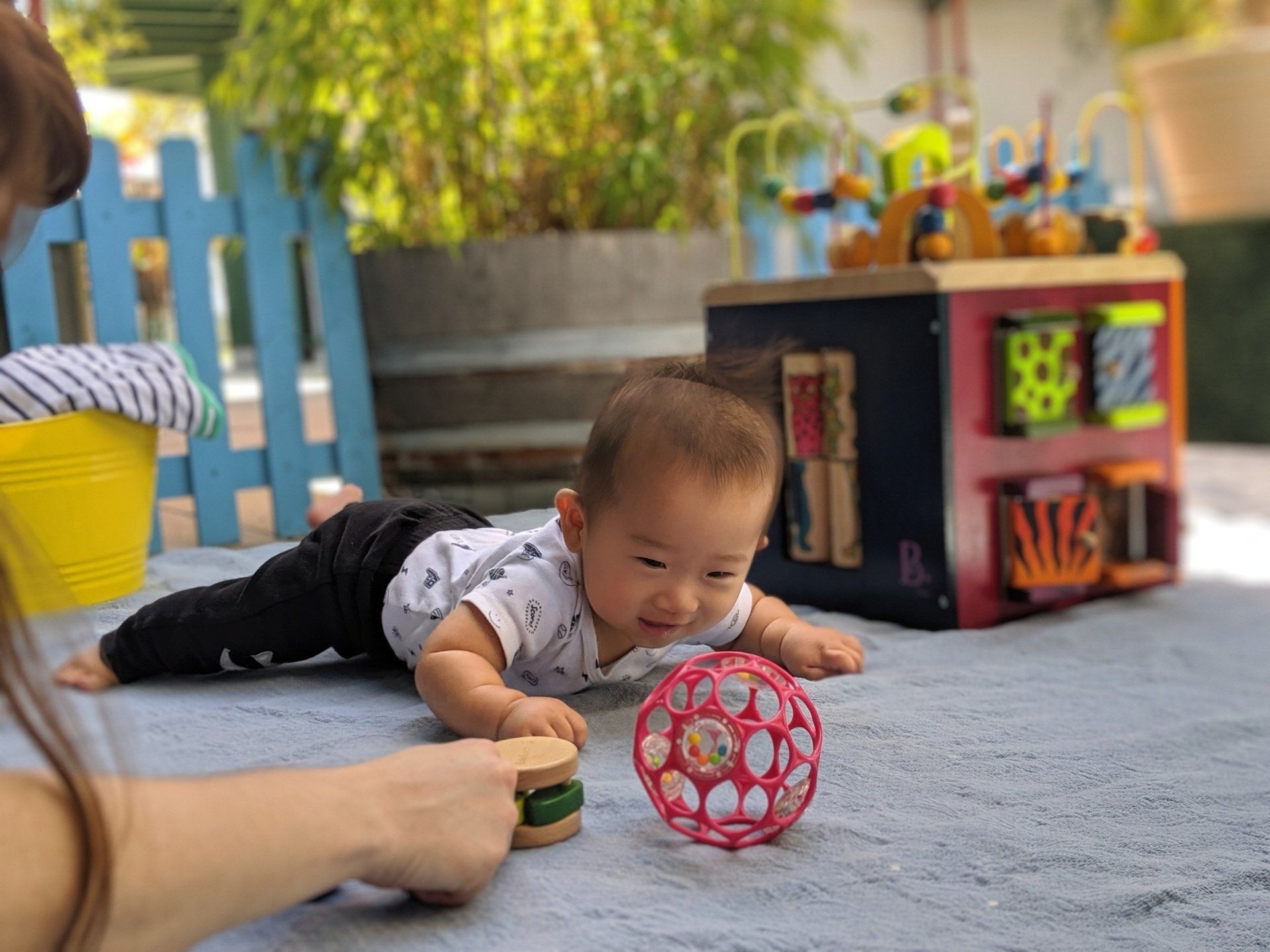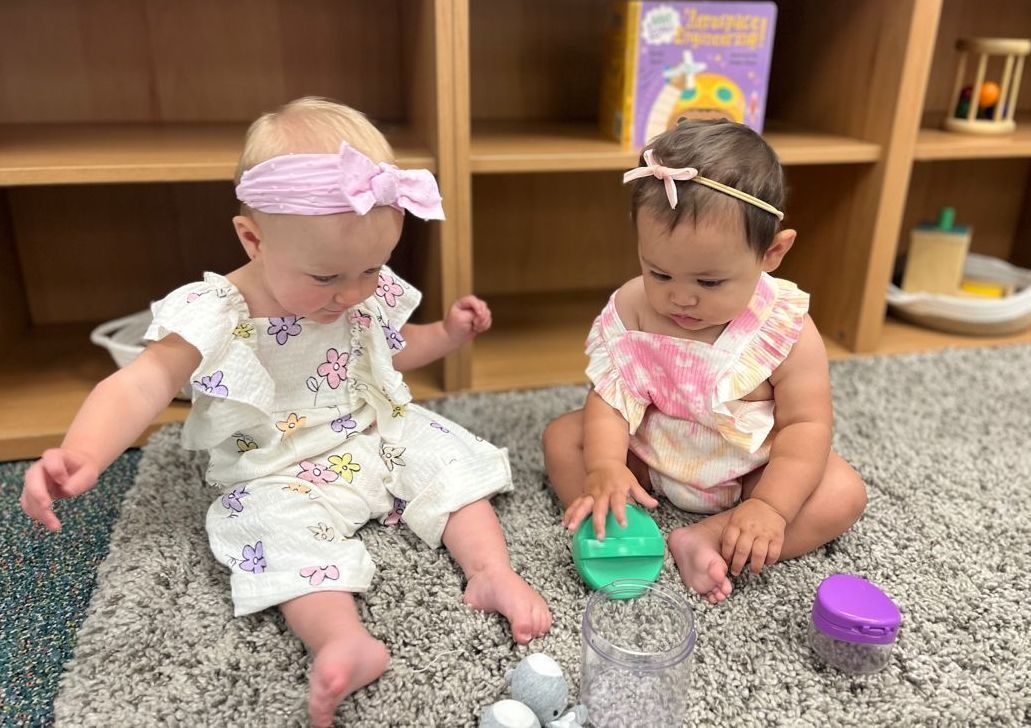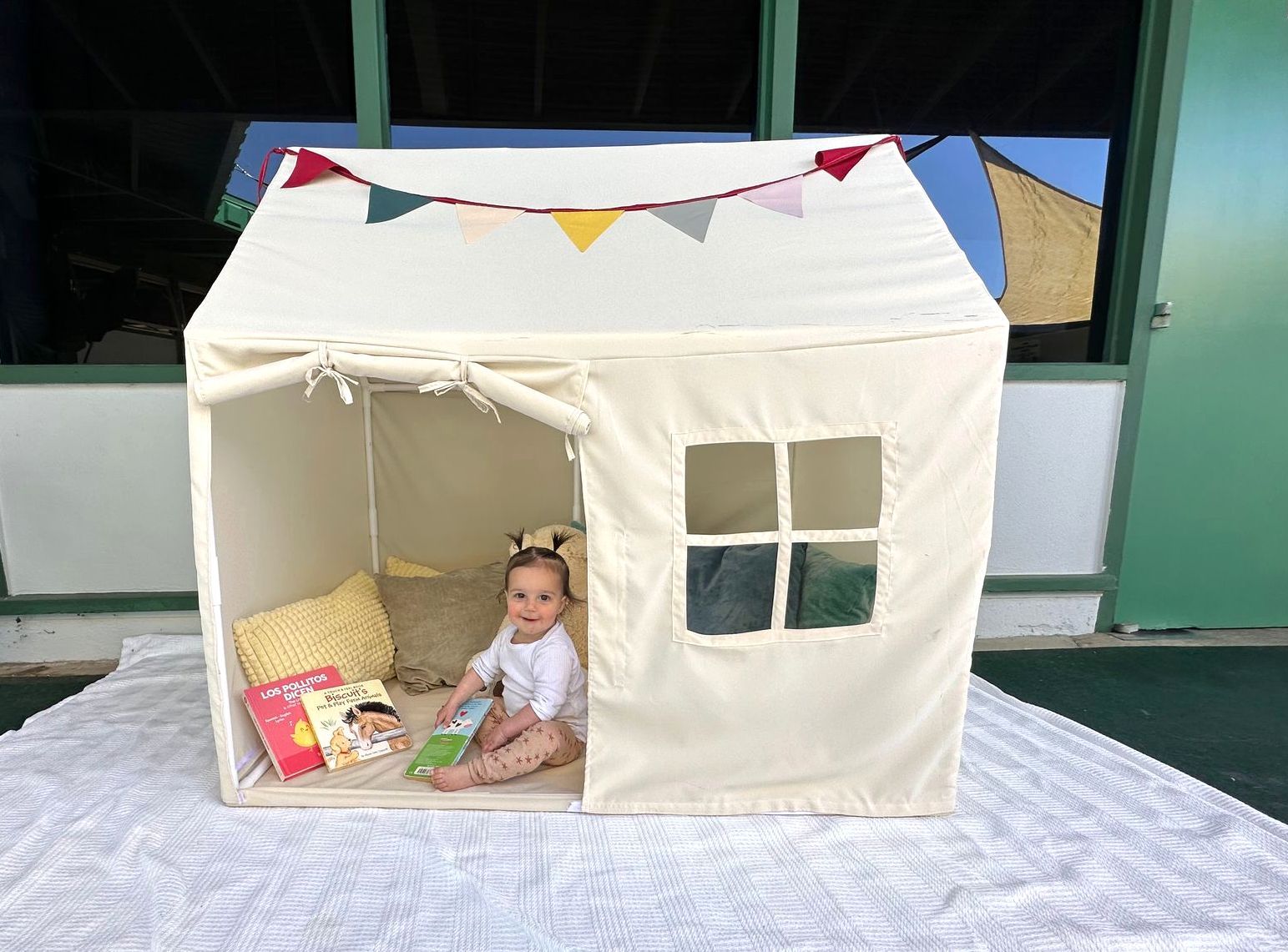Infant
“The greatness of the human personality begins at the hour of birth.”
-Maria Montessori
Program details
Our "nido" or nest environment is for infants from 12 weeks until they are walking, at which point we work with families to gradually transition to our older infant environment. The goal in our Infant program is to instill self-confidence through support of the child’s innate curiosity while also maintaining a balance with the developing skills required for respectful social interactions.
3, 4, or 5 Consecutive Days
Half Day: 8:15-11:30am
Full Day: 8:15am-3:00pm
Extended Day: 8:15am-4:00pm

Nido environment
The nido is a loving and peaceful place where infants can explore, grow and feel secure as they move through each new stage of development. Our environment includes:
- Age appropriate materials to enhance the child’s language, cognitive and motor skill development.
- Soft floor mats and bolsters on which infants can move freely and develop gross motor skills.
- Mirrors positioned close to the floor to stimulate 'tummy time' and self-discovery.
- Low shelving with materials for fine-motor development and cause/effect, such as puzzles, rings on a post, and containers to open and close.
- Our sleeping area is a calm and peaceful environment where a designated nap space for each infant ensures quality rest when it is needed.
Freedom to move is an essential developmental component. We encourage infants to learn through their senses by watching their peers and exploring their surroundings. Our infant room is equipped with stands, stairs and bars that can be used for pulling up as well as other active movement opportunities to develop healthy motor skills.
We recognize the importance of a rich language environment and therefore engage with and respond to the needs of the infant using sign language, verbal language, reading, singing and through use of encouraging and respectful facial expressions.
Feedings, diaper changes and naps are on-demand according to each infant's individual needs while we are also mindful of the need for a consistent and dependable schedule. We encourage mothers to stop by and breastfeed their infants or drop off expressed milk anytime during the day.
As teachers, we are trained to observe each infant's developmental progress in order to know what materials and opportunities to offer. Our priority is to nurture every child with affection and respect and provide a safe and enriching environment that supports optimal brain development.
Walking infants
The Infant environment is carefully designed with age appropriate furniture and materials that foster independence, support cognitive and language development and strengthen fine/gross motor skills:
- Language development through spoken language and conversation, specific language materials, and a vast, rotating library.
- Fine and gross motor development through eye-hand specific manipulatives and independent use of child sized furnishings.
- Learning the independence of self-care and care of environment, and introducing toilet learning.
- Social development - through modeling and direct teaching of respectful social interactions.
- Music, expressive movement, and art are a weekly part of the curriculum.
Emphasis is given to both quality time spent concentrating on purposeful indoor activities as well as outdoor activities and free exploration in nature. Social interactions are consistently guided in a loving and sensitive approach based on respect for individual differences.
Teachers and assistants are trained to interact with children based on knowledge of the direct influence of positive relationships to brain/mind/personality development. Developing close relationships with families, and consistent daily communication is a priority.

Older infant daily schedule
8:15 - 8:30 Arrival and greetings.
8:30 - 9:30 Indoor work period giving lessons and toilet training.
9:30 - 10:00 Indoor community snack together and clean-up.
10:15 - 11:30 Outdoor activities on the older infant play yard.
11:15 - 11:30 Prepare half day children for pick-up.
11:30 - 12:00 Outdoor lunch time eating together and clean-up.
12:00 - 2:15 Afternoon nap/rest time.
2:15 - 2:30 Outdoor snack time.
2:30 - 2:45 Prepare full day children for pick-up.
3:00 - 3:45 Indoor or outdoor activities.
3:45 - 4:00 Prepare extended day children for pick-up.

"It is difficult to sum up the impact South Coast Montessori has had on our family. The school and amazing teachers have played a huge role in raising our two children from toilet training through long division."
School Parent
"An exceptional learning environment! The trained staff are supportive, passionate and the kids truly trust them. The environments are gorgeous and stay true to the pedagogy. SCM is a dream for us, as parents, and a second home, in so many ways, for my son."
School Parent
"This is not a daycare, even for the youngest students. As a parent of two children who have attended since infancy, this school encourages kids to be independent and active participants in their own learning journey. This community builds confidence and the love for learning both in practical and academic settings."
